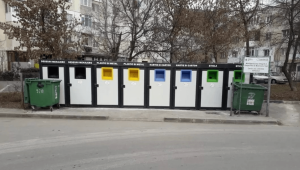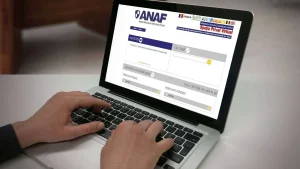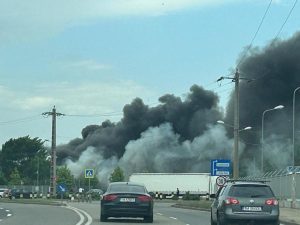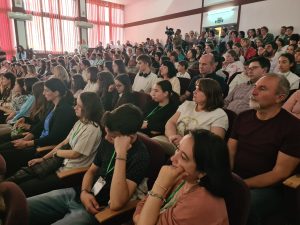
One of our politicians’ favorite occupation, who have an acute sense of the nation in their blood, is the care with which they watch the correct use of Romanian by the minorities. For some time, the general secretary of PRM, Gheorghe Funar, has organized in Cluj, obviously for the Hungarian minorities, courses for the correct use of Romanian. As far as we know, the offer of the Mayor of Cluj has not provoked jumbling on the stairs of the City Hall, and the diploma under the "Funar" aegis doesn’t enjoy acknowledgment not even from the guys in the city. One could say that according to the frequency of this occupation, it is an honorable mission to manifest interest for the enriching of the language.
In fact, Funar "the linguist" is the same with Funar "the painter", after he painted the benches in three colors. From a scientific point of view, we imagine that we should appeal with trust to the well-known Senator George Pruteanu. He is just trying hard to pass through the Parliament a law of "protection of the Romanian language", a draft establishing that on the Romanian territory any text in a foreign language with character of public interest should be accompanied by its translation into Romanian, otherwise severe fines will be applied, much bigger than the ones applied to the companies charges with tax evasion or other economic tricks. What places the law at the level of derision is the fact that in the case of the "spoken texts of public interest, rhythm, volume and intonation of utterance in the foreign language should be identical to the rhythm, volume and intonation in Romanian". It is pretty obvious for everybody that this law remains a fiction. Who stays to evaluate intonation, measure decibels and number the syllables uttered in one second, so that the law of Mr. Pruteanu be not violated?
Which would be the utility of the law and what exactly it solves? For the local public administration, especially in the localities where there lives an ethnically minoritarian population bigger than 20%, the existence of some acts translated in both languages is pretty clear for anyone. But the interest of the law goes farther. It doesn’t has as a target to take care of the correctness of the translation, but also of the attitude of those who dialogue. The law rather aims at disclosing the sincerity of communication than its grammatical correctness, and it originates in a deep suspicion towards the other. What this law tries to do is to punish the presumption of insincerity. It relies on the conception about the minority representative or the foreigner who, secretly, works to serve some foreign interests. This time, the responsible for the Romanian troubles is not hiding any more in the "Hungarian or in the Gypsy, but in the syllables and the vocabulary of the Hungarian or the Romany languages. Which would be the consequences? A Hungarian ethnic representative should prove a perfect knowledge of Romanian, he should pass much more difficult exams than a Romanian. Where do we get? To a double standard. All Romanians can occupy any public position without having to confront with the suspicion or severity the minority will have to.
This state of things leads to the following consequence: if the positions in the local administration are occupied by Romanians unable to express correctly, spoken and written, in the national language, how could the rights of the citizens be respected, the clearness of the ideas by the agency of texts with term confusions and imprecise ideas?
What Mr. Pruteanu offers us now is a sample of linguistic nationalism. What philology was missing in order not to transform into ideology was exactly the absence of a relationship with the power. The problem here is that the law of the protection of Romanian has not the least interest for communication or culture, but it is focused on power, state and politics. Or, contrary to the nationalist prejudices, language is not a reflection of the consciousness of people, but a cultural artifact. How to teach the others Romanian, if at an academic level, in Romania, there are at present two different rules, officially used, as for the use of "i" and "a"? A similar case cannot be met in any other European country.
The main problem is not to teach the minority to talk Romanian, nor to react in an isolationist way to the influences of other languages, but to evaluate how the language is taught in schools. These big patriots forget how many analphabets have got lately a graduation diploma. If the language is for him the most important carrier of Romanian-ism, Mr. Pruteanu should first propose a law against the Parliamentarians that articulate abominably in the Parliament and accuse them of genocide of the Romanian language. But we cannot believe this will happen. We have seen him passing form the critics to Iliescu’s wooden language to the position of processor by chipping in Mr. Iliescu’s party.
Maybe we shall be enlightened in the new cycle of his TV shows "Let me tell you one more word" on the public channel.
(Mihai CHIPER)























